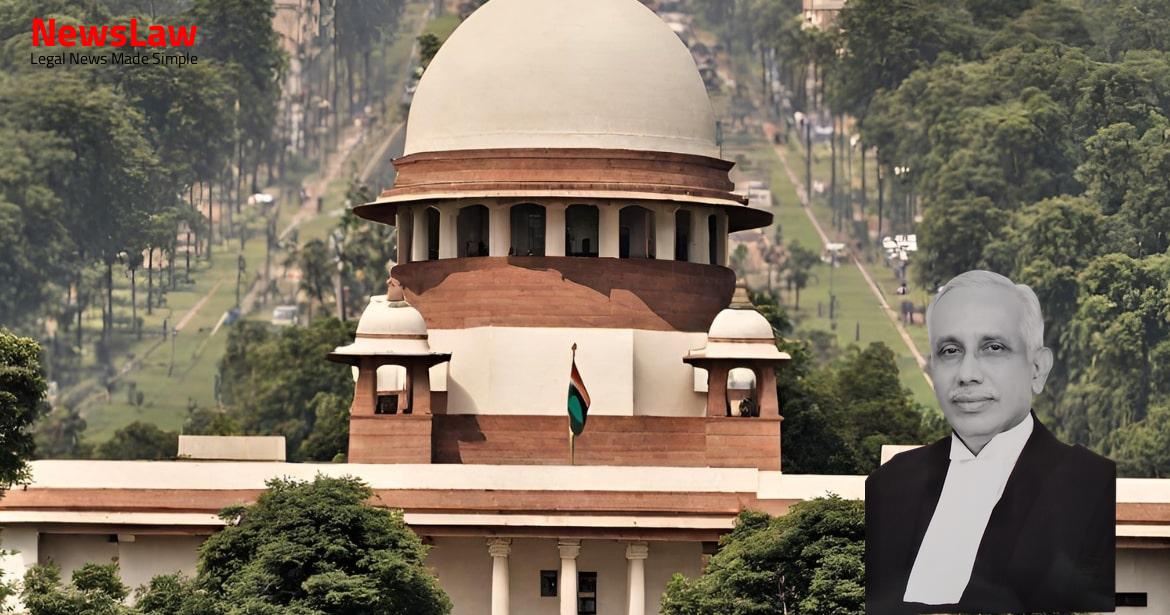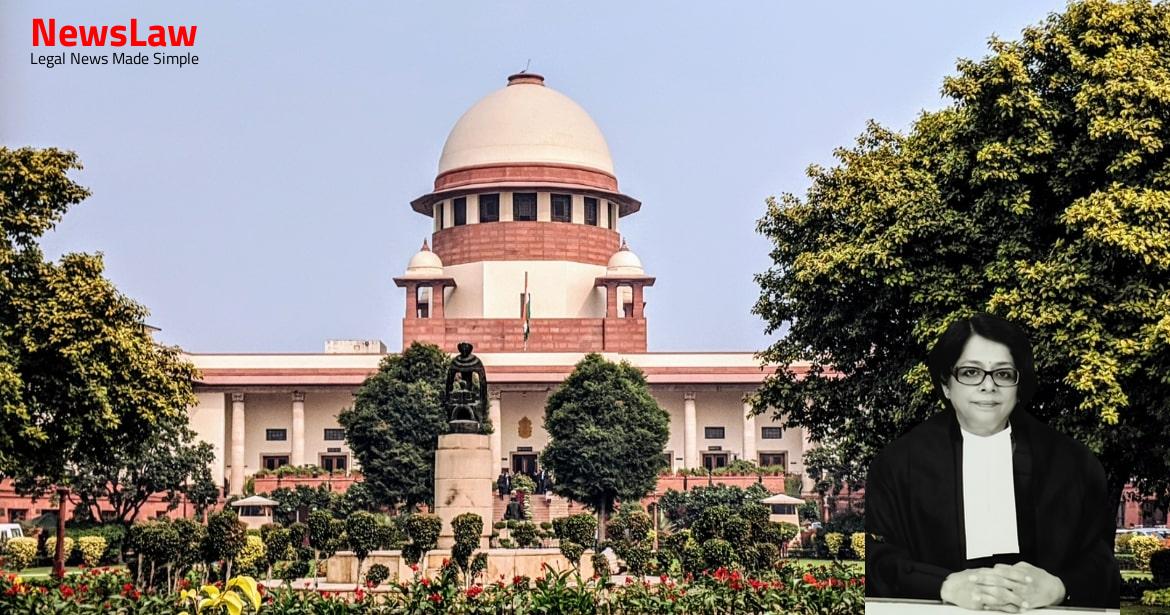In a recent legal case, the court undertook a thorough analysis of relief measures implemented during the COVID-19 pandemic. Emphasizing the limited scope of judicial review in economic policy matters, the court highlighted the importance of expert recommendations and government decision-making. The case underscores the complexities of balancing financial stability, sector-specific considerations, and policy interventions amidst a global crisis. This blog delves into the court’s legal analysis of the relief measures and the reasoning behind non-interference with economic policies.
Facts
- Various writ petitions have been filed challenging notifications by the RBI regarding charging interest during the moratorium period.
- Petitioners are seeking relief from charging interest on term loans and working capital facilities during the moratorium period.
- Prayers include directing lending institutions not to recover interest from industries, extending moratorium periods, restructuring stressed accounts, and providing financial relief to various sectors.
- Petitioners argue that the RBI’s regulatory package does not sufficiently help MSMEs and other affected sectors.
- Requests for waiver of interest, one-time restructuring of accounts, and freezing financial liabilities are also made in the petitions.
- Recommendations to be made relating to financial or non-financial conditions for the Resolution Plan (RP)
- Undertaking process validations of RP for borrowers with aggregate exposure of Rs. 1500 crore and above
- Validation to verify RP adherence to conditions prescribed in the Resolution without interfering with lenders’ commercial judgement
- Covering parameters related to leverage, liquidity, debt serviceability, etc.
- Recommendation of sector-specific ranges for financial parameters as boundary conditions for RP
- Writ Petition (Civil) No 955 of 2020 filed by CREDAI – HR on behalf of real estate sector for financial relief for its members
- Prayer to freeze financial liabilities of members towards banks and financial institutions
- Request to apply Circular dated 27.03.2020 to all loan accounts without discrimination
- Writ Petition (Civil) No 506 of 2020 filed by a private limited company challenging RBI notification charging interest during moratorium period
Also Read: Judicial Review of Delayed Writ Petition
Issue
- 1. The Court has made submissions against limiting relief and directions only to waiver of compound interest for a restricted segment of borrowers.
- 2. It is argued that the scope for relief should not be restricted in this manner.
- 3. The submission implies that relief and directions should be more comprehensive and not limited to a specific group of borrowers.
Also Read: Ownership Dispute: Legal Analysis on Admission and Decree
Arguments
- The Reserve Bank of India (RBI) has been constituted under the provisions of the Reserve Bank of India Act, 1934.
- The RBI is responsible for supervising and controlling the banking business in the country as per the Banking Regulation Act, 1949.
- It is the RBI’s duty to ensure that banks operate prudently and follow sound banking principles.
- Banks do not waive interest but may provide relief packages to borrowers in certain situations like floods or reimbursing interest to the government or private entities.
- The Indian Banks’ Association (IBA) has 203 member banks, comprising public sector, private sector, foreign, co-operative, and regional rural banks.
- Waiving interest can create a shortfall and lead to a mismatch between a bank’s assets and liabilities.
- Relief measures for calamities like cyclones, earthquakes, and droughts are available, but waiver of interest is not a standard practice.
Also Read: Interpretation of Statutory Limitation under Section 263(2)
Analysis
- The court emphasizes the limited scope of judicial review in economic policy matters.
- Government decisions, though subject to scrutiny, are not to be interfered with unless deemed unreasonable or violative of constitutional or statutory provisions.
- The relief packages announced by the Government and RBI were deemed adequate and tailored to the overall economic scenario.
- The relief measures provided must consider the financial implications on the economy and balance the interests of all stakeholders.
- Expert committees and recommendations, such as the Kamath Committee, have played a vital role in informing policy decisions.
- The National Disaster Management Authority (NDMA) has taken necessary steps in compliance with its mandate under the Disaster Management Act of 2005.
- Judicial intervention is not warranted in directing governments to announce specific relief packages, as such decisions fall under the domain of executive expertise.
- Financial constraints and practical limitations must be considered when evaluating the adequacy of relief measures provided by the Government and RBI.
- The court underscores the principle of non-interference with policy decisions unless they are arbitrary or against the law.
- The economic impact of Covid-19 has necessitated comprehensive and balanced responses from the Government and RBI, reflecting the complexities of the crisis.
- Implementation of financial relief measures must be aligned with sector-specific considerations and be guided by expert recommendations.
- The court highlights the importance of maintaining the financial stability of banks and the economy while addressing the challenges arising from the pandemic.
- Courts cannot interfere with matters of economic policy as they should be left to the government or expert bodies.
- Policy decisions must be left to the government to decide after considering various factors.
- The court should not undertake governmental duties or functions as the best choice may not be discernible.
- Judges are not experts in economic matters, so they should be cautious in encroaching into economic and fiscal regulatory measures.
- The court will not interfere with policy decisions unless they are patently arbitrary, discriminatory, or mala fide.
- It is not the function of the courts to scrutinize economic policies, as long as they are made in good faith.
- The National Authority has various powers and responsibilities related to disaster management.
- These include laying down policies, approving plans, coordinating enforcement, and providing support to other countries affected by major disasters.
- The Chairperson of the National Authority can exercise emergency powers, subject to ratification.
- An Advisory Committee consisting of experts in disaster management is to be constituted by the National Authority.
- The National Authority is responsible for laying down policies, plans, and guidelines for disaster management.
- Non-payment of installment during the moratorium period cannot be considered willful
- No justification to charge interest on interest/compound interest/penal interest for the moratorium period
Decision
- Compound interest/interest on interest chargeable on deliberate default by borrower
- No charge of interest on interest/compound interest/penal interest during moratorium period
- Amount recovered under above heads to be refunded to borrowers
- Interim relief not to declare accounts as NPA vacated
- Circular dated 27.03.2020 applicable to all banks and financial institutions
- Deferment of installments due during moratorium period provided by Government
- Refund of interest on interest/compound interest/penal interest for moratorium period to borrowers
- Petitions seeking waiver of interest, extension of moratorium period, sector-wise reliefs dismissed
Case Title: SMALL SCALE INDUSTRIAL MANUFACTURES ASSOCIATION (REGD.) Vs. UNION OF INDIA (2021 INSC 203)
Case Number: W.P.(C) No.-000476 / 2020



